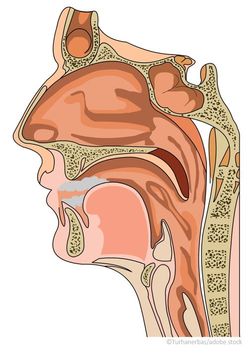© 2025 MJH Life Sciences™ , Patient Care Online – Primary Care News and Clinical Resources. All rights reserved.
Patient Assessment Key in Childhood Seasonal Allergic Rhinitis
Poor agreement between caregiver and children for report of symptoms and relief presents a challenge in clinical trials.
A novel intranasal formulation of azelastine hydrochloride and fluticasone propionate (MP-AzeFlu) in a single spray is effective in children with seasonal allergic rhinitis, according to a new study.
Importantly, children were better at assessing their response to treatment than their caregivers.
Allergic rhinitis (AR) occurs in 8.3% of children from ages 6 to 7, rising to 14.6% in older children aged 13 to 14. “Its impact is routinely underestimated, but is far-reaching, negatively affecting children's overall physical and emotional health, daily activities, quality of sleep and productivity at school,” stated the researchers, led by Dr. William E. Berger of Allergy and Asthma Associates of Southern California in Mission Viejo, CA.
The researchers pointed out that intranasal corticosteroids are widely used to treat seasonal AR in children, and while their efficacy is well established in adults and adolescents, results are inconsistent in school children, without a clear dose–response relationship.
The efficacy of MP-AzeFlu is well established in adults and adolescents with seasonal AR and those with chronic rhinitis, providing faster and more complete symptom control than monotherapy with an intranasal antihistamine or intranasal corticosteroids. It has been recently approved for pediatric use by the US Food and Drug Administration.
The researchers conducted a randomized, double-blind, multicenter, placebo-controlled, parallel-group, 14-day trial in 348 children, aged four to less than 12 years, with moderate to severe seasonal AR.
[[{"type":"media","view_mode":"media_crop","fid":"47374","attributes":{"alt":"","class":"media-image media-image-right","id":"media_crop_5810262629286","media_crop_h":"0","media_crop_image_style":"-1","media_crop_instance":"5567","media_crop_rotate":"0","media_crop_scale_h":"0","media_crop_scale_w":"0","media_crop_w":"0","media_crop_x":"0","media_crop_y":"0","style":"height: 293px; width: 435px; margin: 10px; float: right;","title":"","typeof":"foaf:Image"}}]]The patients who took MP-AzeFlu showed improved scores on the Pediatric Rhinitis Quality of Life Questionnaire, which was reported by the children themselves. But there was no statistically significant improvement in reflective total nasal symptom score. The researchers hypothesized that the lack of improvement in this score was not due to lack of efficacy but due to rater assessment bias.
They also performed a rater sensitivity analysis based on degree of child assessment versus caregiver assessment. The patients were divided into three groups: 157 patients with child assessment less than 10% of the time; 65 patients with child assessment 10% or greater, but less than 90%; and 82 patients with child assessment more than 90% of the time.
The third group showed significant improvements with MP-AzeFlu for overall nasal and ocular symptoms, as well as in individual nasal and ocular symptoms.
“The results of this study confirm its efficacy in children, with an effect size (when children rate their own symptoms) comparable to that seen in adult studies,” the researchers stated. “The results presented here show that children's and caregivers’ symptom assessments cannot be assumed to be the same, and emphasize the importance of using pediatric-generated data when possible.”
The authors emphasized the need for a simple and pediatric-specific tool to assess treatment efficacy in AR trials, noting that future pediatric AR trials would benefit from the inclusion of a pediatric-specific and validated symptom severity assessment tool, such as a visual analogue scale. This simple scale has been used in other AR trials and correlates well with rhinitis quality-of-life questionnaire scores and the reflective total nasal symptom score.
The researchers published their results online March 1, 2016 in Pediatric Allergy and Immunology.
Citation: Berger W, Meltzer EO, Amar N, et al. Efficacy of MP-AzeFlu in children with seasonal allergic rhinitis: Importance of paediatric symptom assessment. Pediatr Allergy Immunol. 2016;27:126-133. Article first published online: 1 MAR 2016. DOI: 10.1111/pai.12540 http://onlinelibrary.wiley.com/doi/10.1111/pai.12540/full



